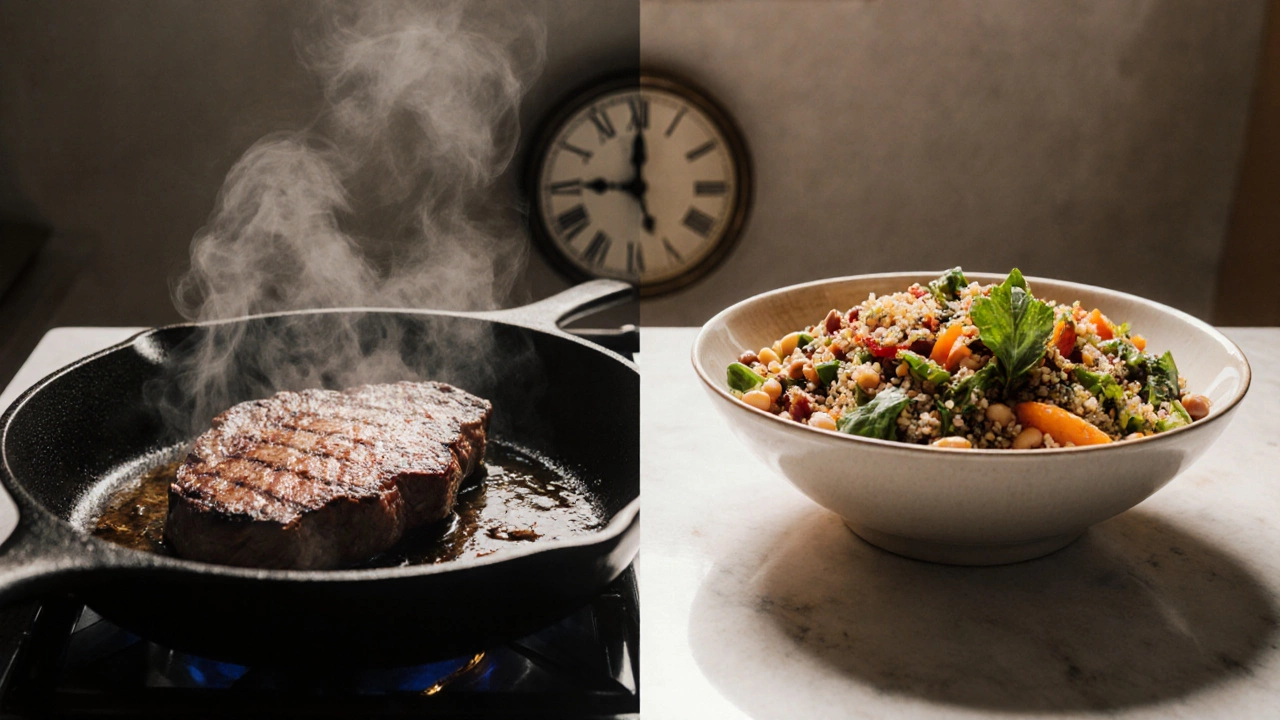Vegetarian vs Meat Study
When you hear the term Vegetarian vs Meat Study, a systematic look at how plant‑based meals stack up against meat‑based dishes in taste, nutrition, and cooking practice. Also known as veg‑meat comparison, it helps readers weigh the pros and cons of each approach. This kind of study vegetarian vs meat study isn’t just academic – it digs into real kitchens. Plant‑Based Alternatives, vegetables, legumes, jackfruit, mushrooms and soy used to mimic meat texture have become the backbone of many home‑cooked meals. They influence texture, flavor, and even the nutritional profile of a dish. At the same time, Meat Cooking Techniques, methods like brining, low‑and‑slow roasting, and precise temperature control that keep animal protein juicy and tender show why chefs still reach for the grill. The study also brings in Nutritional Comparison, data on protein quality, micronutrients, and calorie density between plant‑based and meat meals. By pairing these entities, the research creates a clear picture: plant‑based alternatives can match protein levels when prepared right, while meat techniques continue to deliver flavor depth that many diners crave. This relationship—where plant choices affect texture and nutrition, and meat methods affect juiciness—forms the core of the study’s findings.
What the Study Reveals About Everyday Eating
One surprising insight is how Vegetarian Cuisine, global dishes that rely on beans, grains, and spices to create satisfying meals can rival meat‑heavy plates in satiety. The study shows that the diversity of flavors in veg‑friendly dishes often comes from herbs, fermentation, and umami‑rich ingredients like mushrooms, which act as natural meat substitutes. When you compare a lentil‑based stew to a classic chicken broth, the protein content may be similar, but the fiber boost and lower saturated fat give the vegetarian option a health edge. On the flip side, meat lovers benefit from the iron and vitamin B12 that are naturally abundant in animal protein, especially when cooking methods preserve those nutrients—think quick searing or slow roasting that locks in juices. The study also points out that diet habits matter: people who rotate between plant‑based meals and occasional meat tend to hit a sweet spot for both taste satisfaction and nutrient balance. By linking dietary patterns with cooking techniques, the research offers practical guidance for anyone looking to tweak their weekly menu.
All this background sets the stage for the articles you’ll see next. Below you’ll find a curated collection that drills down on each angle—whether you’re after the best veg‑friendly protein swaps, tips for keeping meat juicy, or the science behind nutrient differences. Dive into the list to get actionable ideas, tasty recipes, and evidence‑backed advice that the vegetarian vs meat study uncovers.
Do Vegetarians Live Longer Than Meat‑Eaters? A Deep Dive into the Data


